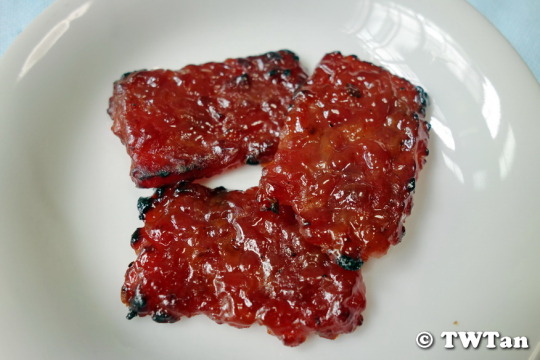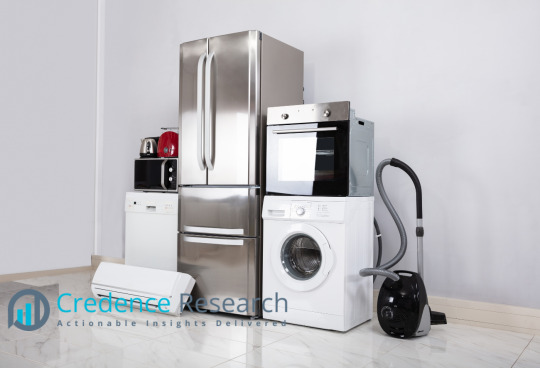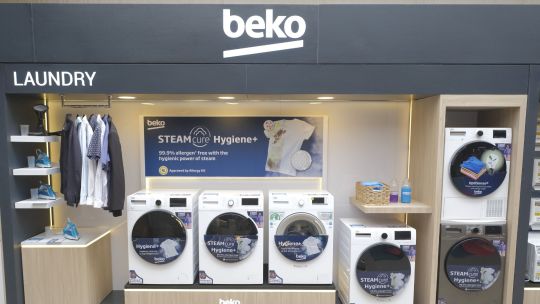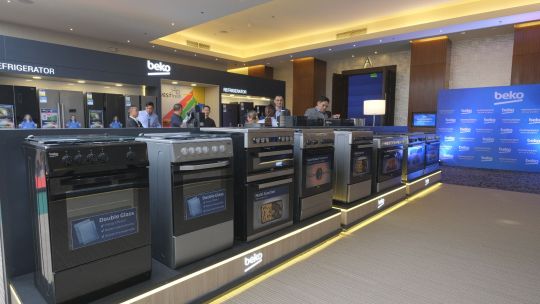#vacuum ovens manufacturers
Explore tagged Tumblr posts
Text

Vacuum Oven Round and Rectangular manufacturers
#Oven#vacuum ovens#vacuum ovens manufacturers#vacuum ovens manufacturers in mumbai#vacuum ovens manufacturers in india#Vacuum Oven Round#Vacuum Oven Round manufacturers#Vacuum Oven Round manufacturers in mumbai#Vacuum Oven Round manufacturers in india
0 notes
Text
Understanding the Role of Environmental Test Chambers Manufacturers in Advanced Testing
In today’s fast-paced industrial and technological advancements, reliable testing solutions are critical for ensuring the quality and durability of products. Environmental test chambers manufacturers, such as Tunix, play a pivotal role in providing cutting-edge solutions for various industries. These chambers simulate real-world environmental conditions, making them essential for testing product reliability under extreme conditions.
What Are Environmental Test Chambers?
Environmental test chambers are specialized equipment designed to simulate a wide range of environmental conditions, such as temperature, humidity, altitude, and vibration. They are used extensively across industries, including automotive, electronics, aerospace, and pharmaceuticals, to test the endurance and performance of products.
Types of Environmental Test Chambers
Temperature and Humidity Test Chambers: These are the most common types and are used to simulate varying temperature and humidity conditions.
Thermal Shock Chambers: Ideal for testing a product’s resistance to sudden changes in temperature.
Altitude Chambers: Designed for testing the performance of products in high-altitude conditions.
Vibration Chambers: Simulate mechanical stresses caused by vibrations during product transportation or usage.
Why Choose Tunix for Temperature and Humidity Test Chambers?
Tunix stands out among environmental test chambers manufacturers due to its commitment to quality and innovation. The company’s temperature and humidity test chamber are designed to deliver precise, reliable, and repeatable results, ensuring that your products meet the highest quality standards.
Key Features of Tunix Test Chambers
Precision Control: Tunix chambers offer accurate temperature and humidity control for consistent testing.
Durability: Built with high-quality materials, these chambers ensure long-lasting performance.
Customizability: Tunix provides tailored solutions to meet specific testing requirements.
Energy Efficiency: Designed to consume less energy, reducing operational costs.
Applications of Environmental Test Chambers
Automotive Industry: Testing vehicle components for heat resistance and durability.
Electronics: Ensuring circuit boards and devices can withstand extreme conditions.
Aerospace: Testing materials and equipment used in high-altitude and temperature-variable conditions.
Pharmaceuticals: Simulating storage conditions to test drug stability.
Frequently Asked Questions (FAQs)
1. What industries benefit the most from environmental test chambers?
Industries like automotive, electronics, aerospace, and pharmaceuticals rely heavily on environmental test chambers for product testing and quality assurance.
2. How do temperature and humidity test chambers work?
These chambers create controlled environments by regulating temperature and humidity levels to simulate real-world conditions for testing product performance.
3. Why is Tunix a trusted name among environmental test chambers manufacturers?
Tunix is renowned for its high-quality, innovative solutions that cater to diverse industry needs, ensuring precise and reliable testing.
Conclusion
Environmental test chambers manufacturers, like Tunix, are integral to advancing product quality and reliability across various industries. Their temperature & humidity test chamber provide the precision and versatility required for rigorous testing standards. For more information, Tunix and explore their range of advanced testing solutions.
#Environmental Test Chambers Manufacturer#About Tunix Corporation#Temperature and Humidity Test Chamber#Mini Environmental Test Chamber#Industrial Hot Air Oven Manufacturers#Climatic Simulation Chamber manufacturer#Careers at Tunix Corporation#Tunix Environmental Test Chambers#Altitude Test Chamber#Thermal Shock test Chamber#Dust Test Chambers Manufacturer#Cyclic Salt Fog Test Chamber#Walk in Environmental Test Chamber#Vibration Test Chamber Manufacturer in India#Water Bath & Oil Bath Equipment#Vacuum Ovens#Stability Test Chambers#Premium Accuracy Dew Point Hygrometers#High-Accuracy Thermo Hygrometer#High-Accuracy Digital Pressure Indicator#Pressure Screw Pump#Ultra Cool Dry Block Temperature Calibrator#Oil Liquid Temperature Calibrator#Dry Block Temperature Calibrator#Temperature & Humidity Calibration Chamber
1 note
·
View note
Text
Laboratory Vacuum Oven Manufacturer In India - Thermolab Scientific
Thermolab Scientific is your trusted lab vacuum oven manufacturer in India, delivering precision and quality for your lab applications. Get in touch today.
0 notes
Text
Vacuum Drying Oven
Labnics Vacuum Drying Oven is a precision-engineered, microprocessor-controlled unit with a polished stainless-steel chamber, adjustable sealing, and bulletproof double glass door. Offers a wide temperature range and sturdy design for heating, drying, and testing applications. Features RS485 connector, vacuum pump, and inert gas valve for seamless data processing. Ideal for laboratories with a 54L volume and vacuum pressure <133 Pa.

1 note
·
View note
Text
Laboratory Vacuum Oven manufacturers in Bangalore
Looking for Laboratory Vacuum Oven manufacturers in Bangalore? Our company stands as a premier provider of cutting-edge vacuum oven solutions tailored to meet the rigorous demands of modern laboratories. With a commitment to innovation and quality, we specialize in crafting high-performance vacuum ovens that excel in precision, reliability, and efficiency.
#Laboratory Vacuum Oven manufacturers in Bangalore#Laboratory Vacuum Oven manufacturers#Laboratory Vacuum Oven manufacturers Bangalore#Laboratory Vacuum Oven in Bangalore
0 notes
Text
Envisys Technologies: Leading Manufacturers of Industrial Ovens & Dryers
Envisys Technologies is a leading manufacturer and supplier of industrial drying and heating ovens. Our versatile heating chambers are suitable for various applications, including drying, curing, aging, annealing, and heat processing tests. Envisys' ovens come in various temperature ranges, layouts, and sizes, featuring precise temperature control systems, uniform air circulation, and advanced controls like PID controllers and programmable controllers. Our company offers custom-built industrial ovens tailored to meet specific client needs, providing comprehensive support throughout the process. Envisys' ovens are manufactured using high-quality materials and advanced manufacturing processes, ensuring durability, reliability, and compliance with international standards. We offer excellent value for money, providing reliable performance at competitive prices. Envisys Technologies is a trusted partner for businesses seeking high-quality industrial oven solutions, demonstrating its commitment to quality and customer satisfaction.
#Industrial oven manufacturers#Industrial ovens#industrial drying oven#industrial heating oven#industrial vacuum oven#infrared oven#industrial walk in oven#walk in oven#Envisys Technologies
0 notes
Text
Vacuum Oven Manufacturers: A Comprehensive Guide to Industry Leaders
Whether you are a scientist, researcher or industry professional, understanding the leading manufacturers in the field of vacuum oven manufacturers is crucial for making informed decisions. We will introduce you to HHV, renowned for their expertise and high-quality products. With their commitment to innovation and customer satisfaction, HHV has emerged as a trusted name in the industry. Join us as we explore HHV's range of vacuum ovens, their unique features and the advantages they offer to various sectors. Prepare to dive into a world of advanced technology and discover how HHV stands out among other Vacuum Oven Manufacturers.
HHV, a leading manufacturer in vacuum oven technology, has established itself as one of the most reputable and innovative companies in the industry. With a strong commitment to excellence and a dedication to meeting the needs of their customers, HHV stands out as a trusted name in vacuum oven manufacturing. They offer a comprehensive range of high-quality vacuum ovens that cater to various industries such as research and development, pharmaceutical and manufacturing.
By integrating advanced technology and superior craftsmanship, HHV ensures that their vacuum ovens provide precise temperature control and fast heating capabilities, making them ideal for delicate processes such as drying, curing and sintering. Additionally, HHV's vacuum ovens are designed with efficiency in mind, featuring energy-saving features that not only reduce operating costs but also contribute to a more sustainable manufacturing process. With their extensive experience and commitment to delivering exceptional products, HHV continues to be at the forefront of the vacuum oven industry, setting the standards for reliability and performance.
HHV is one of the leading vacuum oven manufacturers in the industry. With years of experience and expertise, HHV has established itself as a reliable and trusted name among professionals and businesses alike. The company specializes in the production of vacuum ovens that cater to a wide range of industries, including aerospace, automotive and medical. In addition to their exceptional vacuum ovens, HHV also offers a comprehensive range of accessories and services to ensure optimal performance and efficiency. Of particular note is their vacuum brazing furnace, which is designed to handle the most demanding brazing applications with precision and accuracy. This high-quality furnace is engineered to provide uniform heating and cooling cycles, allowing for superior brazing results and minimizing stress on the components. With HHV's vacuum brazing furnace, manufacturers can achieve excellent joints and precise temperature control, making it an indispensable tool for industry leaders.
In conclusion, HHV stands out as an industry leader in the field of vacuum oven manufacturing. With their dedication to utilizing state-of-the-art technology and top-notch materials, they ensure reliable and efficient operation, ultimately leading to superior performance and increased productivity for their customers. Moreover, their commitment to customer satisfaction is truly commendable, as demonstrated through their exceptional after-sales service and technical support. When choosing a vacuum oven manufacturer, HHV's benchmark in terms of quality, reliability and customer-centric approach makes them the preferred choice among professionals in the industry. Their unwavering commitment to excellence sets them apart and solidifies their position as leaders in the field.
For more information, visit the website https://hhv.in/
Contact Us
Site No. 17, Phase 1, Peenya Industrial Area, Bengaluru – 560058, India
Phone: +91-80-41931000
Fax: +91-80-28394874
Email: [email protected]
1 note
·
View note
Text
VACUUM OVEN
Vacuum drying oven is a specialized type of laboratory oven that operates under reduced atmospheric pressure. It combines the functionality of a traditional oven with the ability to create a vacuum environment. Vacuum ovens are commonly used in scientific, research, and industrial settings for various applications that require low-pressure and controlled temperature conditions. Vacuum chamber work by creating a low-pressure environment inside the chamber, which reduces the boiling point of liquids and enhances the drying process. By lowering the pressure, moisture and volatile substances can evaporate more easily at lower temperatures, preventing damage to heat-sensitive materials.
#manufacture#manufacturer#industrial equipment#metallographicequipments#vaccum#vaccuum#vacuum oven#industrial oven#laboratory oven#vacuum drying oven#vacuum oven supplier#vacuum oven anufacture#vacuum oven supplier in india#vacuum oven manufacture in india#vacuum oven supplier in delhi#vacuum oven manufacture in delhi#vacuum oven supplier in utter pradesh#vacuum oven manufacture in uttar pradesh
1 note
·
View note
Text
Bakkwa (肉干) is very popular in Singapore and Malaysia where it is traditionally eaten during the Chinese New Year. When Chinese immigrants brought this delicacy over to Singapore and Malaysia, it began to take on local characteristics. A notable example lies in the preparation of bakkwa, where the meat is grilled over charcoal rather than air-dried, imparting a smokier flavor to the meat. The Singaporean and Malaysian versions of bakkwa are also sweeter than their mainland China counterparts with many different variations having developed to suit local palates, such as chilli bakkwa.


Bakkwa (肉干) which means dried meat in the Hokkien dialect is among the popular treats for Chinese New Year. The savoury sweetmeat traditionally takes the form of thin square slices and is usually made from pork. Bakkwa varies in appearance from brown to red, depending on the colouring additives contained in the meat. The deep red colour is considered auspicious in Chinese tradition, symbolising good luck and believed to ward off negative energies. Hence, bakkwa is often presented as gifts to relatives and business associates during the festive season.

Since Bakkwa or rougan (肉干) is also a popular souvenir for tourists to Singapore to bring home. Manufacturers have started to vacuum seal their products so to ensure freshness and make it easier to pass through their country custom. Bee Cheng Hiang (美珍香) came up with this bite-size Mini EZ Pork (迷你休闲猪肉干) which you can soak in hot water before consuming.




If there are leftover bakkwa sitting in the fridge, give it a quick toast in the oven then make a sandwich out of it. Or if you are a person who likes to bake, chop up some bakkwa and use it to make something like this sticky Bakkwa Pork Floss Flower Bun (百花献瑞) which sis bought from Country Brot.

#Chinese New Year#农历新年#Lunar New Year#Bakkwa#肉干#Mini EZ Pork#迷你休闲猪肉干#Pork Floss#Bread#Bun#Year of the Snake#蛇年#Happy New Year#新年快乐#Spring Festival#春节#2025#Chinese Festival#Chinese Culture#Bee Cheng Hiang#美珍香#Country Brot#Four Leaves Bakery#Snack#Food#Buffetlicious
126 notes
·
View notes
Text
#polls#poll#daily polls#i love polls#polladay#kitchen appliances#home appliances#appliances#internet of things#smart appliances#features
62 notes
·
View notes
Text

Vacuum Oven Round and Rectangular manufacturers
#Oven#vacuum ovens#vacuum ovens manufacturers#vacuum ovens manufacturers in mumbai#vacuum ovens manufacturers in india#Vacuum Oven Round#Vacuum Oven Round manufacturers#Vacuum Oven Round manufacturers in mumbai#Vacuum Oven Round manufacturers in india#Rectangular Vacuum Oven#Rectangular Vacuum Oven manufacturers#Rectangular Vacuum Oven manufacturers in mumbai#Rectangular Vacuum Oven manufacturers in india
0 notes
Text

What is main things to clean a kitchen?
Keeping your kitchen clean is essential for maintaining a healthy and pleasant cooking environment. Regular cleaning not only ensures that your kitchen remains hygienic but also helps prevent the buildup of grime, which can lead to unpleasant odors and potential health hazards. To efficiently clean your kitchen, it's important to focus on several key areas and use the right tools and techniques. This guide will walk you through the main tasks involved in kitchen cleaning, offering tips and answering common questions to help you maintain a spotless kitchen.
What is the Necessary Things You Need In The Kitchen
Counters and Surfaces: Start by clearing off all countertops, including any small appliances, utensils, and food items. Use a kitchen cleaner or a mix of mild soap and water to wipe down surfaces. Pay attention to areas around the sink, stove, and backsplash where spills and splatters can accumulate.
Sink: The sink often harbors bacteria and food particles. Scrub the sink with a non-abrasive cleaner or a mixture of baking soda and water. For a sparkling finish, you can also use a solution of vinegar and water. Don’t forget to clean the faucet and handles, as these are frequently touched areas.
Stovetop: Remove burner grates and knobs if you have a gas stove. Soak them in soapy water and scrub away any grease or residue. For electric stoves, wipe down the surface with a suitable cleaner, ensuring you don’t use excessive moisture that could damage electrical components.
Oven: Clean the interior of the oven periodically to avoid the buildup of burnt food and grease. Use an oven cleaner or a homemade paste of baking soda and water. For self-cleaning ovens, follow the manufacturer’s instructions to activate the cleaning cycle.
Refrigerator: Empty the refrigerator and discard any expired or unwanted food. Wipe down shelves and drawers with a mixture of water and mild detergent. Clean the exterior and handles with an all-purpose cleaner.
Flooring: Sweep or vacuum the kitchen floor to remove crumbs and debris. Mop the floor using a cleaner suitable for your flooring type (tile, laminate, etc.). Make sure to rinse the mop frequently to avoid spreading dirt around.
Garbage and Recycling: Regularly empty the trash and recycling bins to prevent odors and bacterial growth. Clean the bins themselves with soap and water to remove any residual grime.
Small Appliances: Wipe down small appliances like toasters, microwaves, and coffee makers. For appliances with removable parts, such as toaster trays or microwave turntables, wash them separately.
Frequently Asked Question
How often should I clean my kitchen?
It’s best to do a quick clean daily—wipe down surfaces, wash dishes, and sweep the floor. A more thorough cleaning should be done weekly, including scrubbing the sink, stovetop, and refrigerator. Monthly or quarterly, address deep cleaning tasks like oven cleaning and organizing cabinets.
What’s the best way to clean greasy kitchen cabinets?
To clean greasy cabinets, use a mixture of warm water and dish soap. For stubborn grease, add a bit of baking soda to the solution. Apply with a soft cloth or sponge, and wipe with a clean, damp cloth to remove any soap residue.
How do I get rid of odors in my garbage disposal?
To eliminate odors, grind up lemon peels or ice cubes in the disposal. You can also use a mixture of baking soda and vinegar, letting it sit for a few minutes before running water through the disposal.
Can I use bleach to clean my kitchen?
While bleach is effective for disinfecting, it’s often too harsh for regular kitchen cleaning. Use it sparingly and always dilute it according to the manufacturer’s instructions. For routine cleaning, stick to milder cleaners to avoid damaging surfaces.
What’s the best way to clean stainless steel appliances?
To clean stainless steel appliances, use a dedicated stainless steel cleaner or a mixture of water and vinegar. Wipe in the direction of the grain and dry with a soft cloth to avoid streaks and water spots.
Conclusion
A clean kitchen is the cornerstone of a healthy and enjoyable cooking experience. By regularly addressing key areas such as countertops, sinks, stovetops, and floors, and utilizing the right cleaning tools and techniques, you can maintain a space that is not only visually appealing but also hygienic. Remember that consistency is key—daily tidying, weekly deep cleaning, and periodic maintenance will keep your kitchen in top shape. By incorporating these practices into your routine and addressing common questions and concerns, you'll ensure that your kitchen remains a safe, efficient, and pleasant place to prepare meals. Happy cleaning!
2 notes
·
View notes
Text
Household Appliances Market Overview: Growth Factors and Future Trends (2023-2032)

The global demand for Household Appliances was valued at USD 602514.2 million in 2023 and is expected to reach USD 1035351.78 million in 2032, growing at a CAGR of 6.20% between 2024 and 2032.
The household appliances market encompasses a wide range of devices and equipment used for everyday domestic tasks such as cooking, cleaning, and food preservation. This market includes major appliances like refrigerators, washing machines, dishwashers, ovens, and air conditioners, as well as small appliances such as microwaves, vacuum cleaners, coffee makers, and blenders. The growth of this market is driven by factors such as increasing urbanization, rising disposable incomes, and technological advancements that enhance convenience and efficiency.
Consumers are increasingly seeking smart appliances with features like energy efficiency, connectivity, and automation, which allow for better control and monitoring of household tasks. Additionally, the trend towards sustainable living is leading to a higher demand for eco-friendly and energy-efficient appliances. Key players in the market, such as Whirlpool, Samsung, LG, and Electrolux, continually innovate to meet evolving consumer preferences and regulatory standards. The household appliances market is highly competitive and global, with significant growth potential in emerging economies where rising living standards and expanding middle classes are driving demand for modern home conveniences.
Major Household Appliances-
Refrigerators: Used for preserving food by keeping it cold.
Washing Machines: Used for cleaning clothes automatically.
Dishwashers: Used for cleaning dishes and utensils.
Ovens: Used for baking, roasting, and cooking food.
Air Conditioners: Used for cooling and sometimes heating indoor air.
Microwaves: Used for quick cooking, heating, and defrosting food.
Dryers: Used for drying clothes after washing.
Small Appliances-
Vacuum Cleaners: Used for cleaning floors, carpets, and upholstery.
Coffee Makers: Used for brewing coffee.
Blenders: Used for blending, mixing, and pureeing food and drinks.
Toasters and Toaster Ovens: Used for toasting bread and baking small items.
Electric Kettles: Used for boiling water quickly.
Irons: Used for removing wrinkles from clothes.
Food Processors: Used for chopping, slicing, and dicing food.
Kitchen Appliances-
Stoves and Cooktops: Used for cooking food using gas or electricity.
Slow Cookers: Used for cooking food at low temperatures over a long period.
Pressure Cookers: Used for cooking food quickly under high pressure.
Rice Cookers: Used for cooking rice perfectly and sometimes other grains.
Juicers: Used for extracting juice from fruits and vegetables.
Cleaning Appliances-
Steam Mops: Used for deep cleaning floors with steam.
Robotic Vacuum Cleaners: Automated devices used for cleaning floors without manual intervention.
Carpet Cleaners: Used for deep cleaning carpets.
Personal Care Appliances-
Hair Dryers: Used for drying hair quickly.
Electric Shavers: Used for shaving facial or body hair.
Hair Straighteners: Used for straightening hair.
Home Comfort Appliances-
Humidifiers: Used for adding moisture to the air.
Dehumidifiers: Used for removing moisture from the air.
Heaters: Used for providing warmth during cold weather.
Fans: Used for circulating air and providing cooling.
Health and Wellness Appliances-
Air Purifiers: Used for cleaning the air of pollutants and allergens.
Water Purifiers: Used for making drinking water safe and clean.
Electric Massagers: Used for relieving muscle tension and pain.
Household Appliances Market Challenges:
Intense Competition-
Market Saturation: The household appliances market is highly competitive, with numerous established brands and new entrants constantly vying for market share.
Price Wars: Intense competition often leads to price wars, which can erode profit margins for manufacturers and retailers.
Technological Advancements-
Rapid Innovation: The fast pace of technological advancements requires companies to continually invest in research and development to stay relevant and competitive.
Obsolescence: Products can quickly become outdated, forcing companies to regularly update their offerings, which can be costly.
Supply Chain Disruptions-
Global Dependencies: The global nature of the supply chain makes it vulnerable to disruptions caused by geopolitical tensions, natural disasters, and pandemics.
Logistics Issues: Shipping delays and increased transportation costs can impact the timely delivery of products and overall profitability.
Regulatory Compliance-
Environmental Regulations: Increasingly stringent environmental regulations require manufacturers to produce energy-efficient and eco-friendly products, which can increase production costs.
Safety Standards: Adhering to various safety standards across different regions can be complex and expensive.
Sustainability Concerns-
Eco-Friendly Materials: The demand for sustainable and recyclable materials poses a challenge, as they can be more expensive and harder to source.
Waste Management: Managing electronic waste and ensuring proper disposal or recycling of old appliances is a growing concern.
Consumer Expectations-
Quality and Reliability: Consumers expect high-quality, reliable products, and any failure can lead to loss of brand reputation and customer loyalty.
Smart Features: Increasing demand for smart and connected appliances requires significant investment in technology and infrastructure.
Economic Fluctuations-
Recession Impact: Economic downturns can lead to reduced consumer spending on non-essential items, including household appliances.
Currency Fluctuations: Exchange rate volatility can affect the cost of imported components and overall pricing strategies.
Key Players:
Dick GmbH & Co (Germany)
GLOBAL APPLIANCES USA (U.S.)
KAI USA LTD (U.S.)
Kiya corp. (Japan)
A.C. Knife (U.S.)
Messermeister (Germany)
Victorinox AG (Switzerland)
Anker Innovation Technology Co., Ltd. (China)
Samsung Electronics Co., Ltd (South Korea)
Shenzhen Proscenic Technology Co. Ltd. (China)
Neato Robotics, Inc. (U.S.)
Cecotec Innovaciones S.L. (Spain)
G. Electronics Inc (South Korea)
Dyson Limited (U.K.)
Panasonic Corporation (Japan)
Sharp Corporation (U.S.)
More About Report- https://www.credenceresearch.com/report/household-appliances-market
The household appliances market is influenced by a variety of dynamic factors that shape its growth, trends, and competitive landscape. Understanding these dynamics is crucial for market players to navigate the industry effectively. Here are the key dynamics:
Consumer Preferences and Behavior:
Smart and Connected Appliances: There is a growing preference for smart appliances that offer remote control, automation, and connectivity with other smart home devices.
Energy Efficiency: Consumers are increasingly seeking energy-efficient appliances to reduce electricity bills and minimize environmental impact.
Aesthetic and Design: Stylish and aesthetically pleasing designs are becoming important as consumers look for appliances that complement their home decor.
Convenience and Ease of Use: Features that enhance convenience and ease of use, such as touch controls, voice commands, and self-cleaning functions, are highly valued.
Technological Trends:
Internet of Things (IoT): Integration of IoT technology in appliances allows for smart functionality, remote monitoring, and control, leading to improved user experience.
Artificial Intelligence (AI): AI-driven appliances offer advanced features like predictive maintenance, personalized settings, and enhanced performance.
Sustainability Innovations: Development of eco-friendly appliances using sustainable materials and technologies to reduce energy and water consumption.
Competitive Landscape:
Major Players: Dominated by global giants such as Whirlpool, Samsung, LG, Electrolux, and Bosch, which continuously innovate and expand their product portfolios.
Local Brands: In emerging markets, local brands compete effectively by offering cost-effective solutions tailored to regional preferences.
Mergers and Acquisitions: Companies engage in mergers, acquisitions, and strategic partnerships to expand their market presence and technological capabilities.
Regulatory and Environmental Factors:
Energy Regulations: Governments worldwide are implementing stringent energy efficiency standards, compelling manufacturers to produce compliant appliances.
Environmental Policies: Policies promoting the reduction of carbon footprints and the use of eco-friendly materials influence product development and manufacturing processes.
Safety Standards: Compliance with safety regulations is crucial to ensure consumer safety and avoid legal repercussions.
Economic Influences:
Economic Stability: Economic conditions significantly impact consumer spending on household appliances. Economic downturns can lead to reduced demand, while periods of growth boost sales.
Currency Fluctuations: Exchange rate volatility affects the cost of imported components and final product pricing, influencing profitability.
Supply Chain Dynamics:
Global Supply Chain: The globalized supply chain for components and raw materials can be vulnerable to disruptions caused by geopolitical tensions, natural disasters, and pandemics.
Logistics and Distribution: Efficient logistics and distribution networks are essential to ensure timely delivery and availability of products in various markets.
Marketing and Branding:
Brand Loyalty: Strong brand recognition and loyalty play a crucial role in consumer purchasing decisions. Established brands invest heavily in marketing to maintain their market position.
Digital Marketing: The rise of digital marketing, social media, and influencer collaborations enhances brand visibility and consumer engagement.
E-commerce and Retail Trends:
Online Sales Growth: The shift towards online shopping, accelerated by the COVID-19 pandemic, has led to increased sales through e-commerce platforms.
Omni-channel Strategies: Companies are adopting omni-channel retail strategies, integrating online and offline sales channels to provide a seamless shopping experience.
Segmentation:
By Major Appliance Segmentation:
Refrigerators and Freezers
Cooking Ranges and Ovens
Dishwashers
Range Hoods and Ventilation Systems
Food Processors and Blenders
Laundry Appliances:
Washing Machines
Clothes Dryers
Washer-Dryer Combos
Ironing Systems
Water Heaters and Boilers
Air Conditioners and Heaters
Browse the full report – https://www.credenceresearch.com/report/household-appliances-market
Browse Our Blog: https://www.linkedin.com/pulse/household-appliances-market-analysis-global-industry-qqiif
Contact Us:
Phone: +91 6232 49 3207
Email: [email protected]
Website: https://www.credenceresearch.com
2 notes
·
View notes
Text
Before we get to the geopolitics, can we have a moment to inhabit the technological sublime? Microchips are some of the most extraordinary objects humanity has ever made. Miller has a good illustration of this: the coronavirus is tiny, about a hundred billionths of a metre across, but it is a galumphing heifer of a beast compared to the smallest transistors being made in Fab 18, which are half that size. TSMC is now talking about transistor nodes in terms of three billionths of a metre. This is so small that quantum effects, which happen mostly at the subatomic level, become relevant.
The machinery needed to manufacture these extraordinarily delicate artefacts has got bigger and more complicated as the microchips have shrunk in size and increased in power. The silicon is etched onto the chips with a new technique called extreme ultraviolet lithography. Think of a microscope, which makes small things big. Now turn it round, so that the lens is making big things small. And now use that process to take a super-complex design and etch it onto an infinitesimally small microchip. That is lithography, which has been the basis of microchip manufacture ever since Jay Lathrop at TI invented it in 1958. But as the chips have got smaller, the lithography process has got more and more difficult.
At the far limit of the technology is the Dutch company ASML, the only firm in the world to have mastered EUV lithography. This process involves the production of EUV light, which in turn involves
“a tiny ball of tin measuring thirty millionths of a metre moving through a vacuum at a speed of around two hundred miles per hour. The tin is then struck twice with a laser, the first pulse to warm it up, the second to blast it into a plasma with a temperature around half a million degrees, many times hotter than the surface of the sun. This process of blasting tin is then repeated fifty thousand times per second to produce EUV light in the quantities necessary to fabricate chips.���
The company that learned how to do this is an American firm called Cymer. Their process depended on a laser so powerful it produced too much heat unless it could be cooled with fans; but the fans ran so fast they burned out their bearings; so engineers invented a process for holding the fans in mid-air, suspended by magnets. The company that invented the new laser is a German firm distractingly called Trumpf. Its development took a decade. Each laser consists of 457,329 parts. The next stage in EUV was the manufacture of a new kind of mirror, made by the German company Zeiss, the smoothest mirror ever made: if it was the same size as Germany, its smallest irregularity would be 0.1 millimetre. But the most complicated laser ever made and the smoothest mirror ever made are just two components of ASML’s lithography device. Look back over that chain: the Taiwanese company (TSMC) commissions the Dutch company (ASML) which commissions the US company (Cymer) which commissions the German company (Trumpf) and also the other German company (Zeiss). It is no wonder that ASML’s latest EUV device is ‘the most expensive mass-produced machine tool in history’.
At this point, the technological sublime and geopolitics merge. Chips are ubiquitous, but top-end chips are not: they are the product of a highly concentrated manufacturing process in which a tiny number of companies constitute an impassable global choke point. If you can’t work with ASML, you can’t make a high-end chip. If you can’t get your top-of-the-range chip made by TSMC, Samsung or Intel, there’s no point designing it, because nobody else can manufacture it.
10 notes
·
View notes
Text
Beko Marks 3rd Anniversary In The Philippines With Trade Launch, Lays Out Business Development Plans
Beko Philippines is entering a new phase of business in their journey to bring the European brand to a sustainable lifestyle for Filipino customers. In celebration of its third year of operations, Beko announces its goal of being the number one European brand in the Philippine market in the next 5 years.

“We are very happy to be holding this trade launch for our dealers and stakeholders as we share that Beko will be a bigger and better brand in the Philippines in 2023 and beyond,” said Gürhan Günal, Beko’s country director in the Philippines, who also presented the company’s business development plans of EXPAND, GROW, LEAD, CONNECTIVITY and SUSTAINABILITY for the Philippines along with the brand’s hero technologies at the anniversary trade launch at the Grand Ballroom of Marriott Hotel Manila.
This is the heart and reason why this year, Beko will be made available soon in other appliance stores nationwide as it continues to “expand” its distribution to other retail channels.

To further “grow” brand awareness and visibility they also announced the renewal of their brand ambassadorship with Judy Ann Santos-Agoncillo alongside with digital and traditional media investments.
As one of the “leading” manufacturers of home appliances, Beko promotes the Live Like a Pro lifestyle and inspires Filipinos to experience a more convenient way of living through European style product lines. They stated that Beko Pilipinas Corporation is the exclusive distributor of Hitachi Major Domestic Appliances as part of their brand portfolio.
Beko appliances are made smart, relevant and designed to easily support Filipino families. With the HomeWhiz function you can easily “connect” to your Beko appliances with the use of your smartphones.
As part of Beko’s global sustainability effort, Beko Philippines announces its partnership with Plastic Credit Exchange, which serves a global ecosystem of carefully vetted partners that recover, process, and recycle plastic waste with programs that improve livelihood, scale up social impact, and reduce the flow of plastic pollution into nature. The partnership is in line with Extended Producer Responsibility Law, which holds companies responsible for the plastic packaging they use throughout the lifecycle of their products.
Trade launch showcasing hero technologies
As Beko marked its third year in the Philippines, the appliance brand held a grand trade launch for its dealers at the Marriott Hotel Grand Ballroom with the theme “Empowered to Live Like A Pro.”

During the whole-day event, guests, including media and dealers, got to experience Beko’s range of appliances. They also got tips from a chef and an interior designer on how to manage their homes like a pro.
Beko Philippines showcased its hero technologies, such as HarvestFresh, ProSmart Inverter Technology, Steam Cure, Hygiene+, AeroPerfect TM and many others. These technologies help you live like a pro. Among the products displayed that day were cookers. The HII64205F2MT is a 60x50cm built-in induction hob with four Cooking Zones and two 2 Flexizone, nine cooking levels and a glass burner plate. Meanwhile, the BBIS14300XCSE 60x60cm. multifunction built-in oven with six cooking functions, including Steam Aid feature for moist and even cooking.

There were also refrigerators, one of the appliances which Beko is famous for. The GNO480E40HFGBPH is a 16.6cf inverter multi-door refrigerator with Neofrost Triple Cooling Technology, HarvestFresh, Prosmart Inverter Compressor, in sleek black glass door finish. Also featured is the Hitachi Refrigerator R-WB640VG0-1 GBK with Vacuum Technology with Platinum Catalyst, Inverter X Dual-fan Cooling with Eco-thermo sensor.

Other appliances include the CEG7302B, a bean-to-cup espresso machine and the BSEOG180/181 2Hp air-conditioner with Go Clean Technology, MicroClean TM Filter, Gold Guard, ZoneFollow, 4D Auto Swing and HomeWhiz.

Beko appliances are available at 1st Megasaver, Abenson, All Home, Anson’s, Appliance Centrum, Asian Home Appliance, Automatic Centre, BHF, Echo Electrical, Fair N Square, Gloria Bazaar, Great World, Hat, J Marketing, Lazada, Magic Appliance, Manhattan Appliance, Mike’s Department Store, NB Marketing, Pricewise, RS David, Our Builders, Robinsons Appliance, Savers, Shopee, SM Appliance, Solidmark, SVC & Plusign, United Motoliance, and Western Appliance.
For more information about Beko in the Philippines, go to http://beko.ph or visit their Facebook page at https://www.facebook.com/bekoph and their Instagram page at https://www.instagram.com/bekoph/.
–
📧 If you wish to send an invite and feature your province/company brand/event; Just ask the author of this vlog, email us at [email protected]
Follow our Social Media Accounts: Facebook Fan Page: https://www.facebook.com/TakeOffPHBlog
Instagram/Twitter: @takeoff_ph
Website: https://takeoffphilippines.com
Subscribe to our YouTube Channel: https://www.youtube.com/c/TakeOffPhilippines
3 notes
·
View notes
Text
Vacuum oven manufacturers in Bangalore
For businesses in Bangalore seeking reliable vacuum ovens, look no further than our premier manufacturers. With a commitment to quality and innovation, our vacuum oven solutions cater to a diverse range of industrial needs. Our ovens are meticulously designed and engineered to provide precise temperature control and efficient vacuum conditions, ensuring optimal performance and reproducibility in your processes.
#Vacuum oven manufacturers in Bangalore#Vacuum oven manufacturers#Vacuum oven manufacturers Bangalore
0 notes